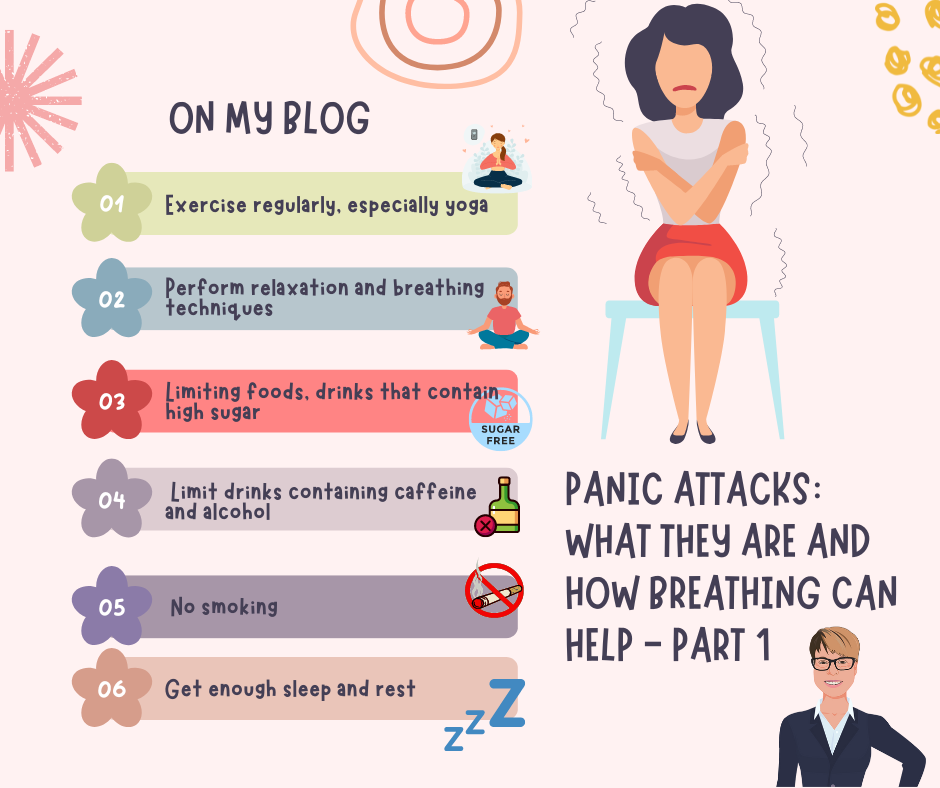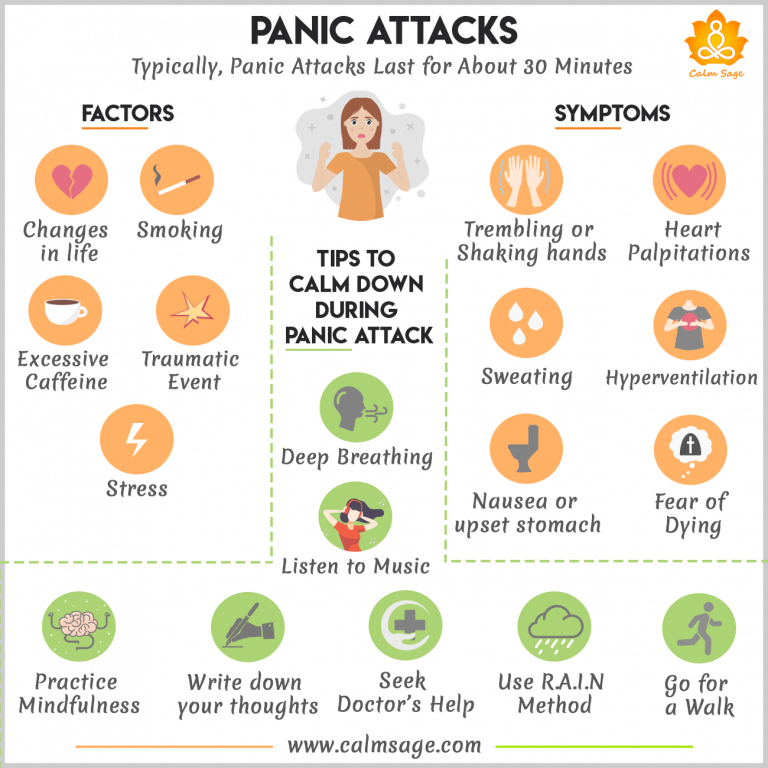Discover the secrets to overcoming panic attacks with this comprehensive how-to guide that will change your life forever.
Table of Contents
- Introduction: Understanding Panic Attacks
- Recognizing The Signs of a Panic Attack
- Preparation: Tools You Need
- Breathing Techniques to the Rescue
- Using Imagination: Mind Over Matter
- Getting Your Body To Chill Out
- Keeping a Panic Diary
- Talking To Someone: Finding Help
- When to Seek More Help
- Conclusion: You’ve Got This!
- Frequently Asked Questions (FAQs)
Introduction: Understanding Panic Attacks
Do you know what a panic attack is all about? Today, we’re going to talk about panic attacks and anxiety. These are some big feelings that can make us feel really scared, but don’t worry, we’ll learn together how to handle them.
What Is a Panic Attack?
Imagine feeling suddenly very, very scared, as if something really bad is happening, even when everything around you is okay. That’s what happens during a panic attack. It’s like your body thinks there’s a danger, but there isn’t really one.
Common Feelings During a Panic Attack
During a panic attack, you might feel your heart racing like a super-fast train, have trouble breathing, or start sweating a lot. It can also feel like you’re going crazy or that something terrible will happen. But remember, it’s just a feeling, and it will pass.
Recognizing The Signs of a Panic Attack
When it comes to dealing with panic attacks, one of the most important steps is being able to recognize the signs that tell us a panic attack may be on its way. By understanding these signs, we can be better prepared to manage our anxiety and stress effectively.
Physical Signs
During a panic attack, our bodies go through various changes that can be quite alarming. You might notice your heart racing, sweating, trembling, or feeling dizzy. These physical sensations are the body’s way of reacting to stress. It’s essential to be aware of these symptoms so you can take the necessary steps to calm yourself down.
Emotional Signs
Aside from the physical symptoms, there are also emotional signs that indicate a panic attack is looming. You might feel a sense of intense fear, worry, or unease. Some people experience a feeling of impending doom or a loss of control. Emotional cues are just as important as the physical ones in identifying a panic attack.
Preparation: Tools You Need
When preparing for a potential panic attack, it can be helpful to have a comforting object nearby. This object can be anything that brings you a sense of calm and security, like a favorite stuffed animal, a soothing stone, or a special piece of jewelry. Having this object within reach can provide a sense of grounding during a panic attack and remind you that you are safe.

Image courtesy of happihuman.com via Google Images
Helpful People
Another important tool to have in your preparation toolkit is a trusted person you can turn to for support. This could be a parent, a teacher, a friend, or a counselor. Knowing that there is someone you can rely on to listen to you and help you through tough moments can make a big difference when managing panic attacks. Don’t hesitate to reach out to them when you need a helping hand.
Breathing Techniques to the Rescue
In times of stress and anxiety, our breath can be our superhero, swooping in to save the day. Let’s dive into some simple breathing exercises that can help us calm our minds and bodies during a panic attack.
Simple Breathing Exercise
When you feel a panic attack creeping up, find a quiet spot to sit or lie down comfortably. Close your eyes and take a deep breath in through your nose, counting to four slowly. Hold your breath for a count of four, and then exhale slowly through your mouth for another count of four. Repeat this cycle a few times, focusing on the sensation of your breath moving in and out of your body.
Counting Breaths
Another helpful breathing technique involves counting your breaths. As you inhale, count “one,” and as you exhale, count “two.” Continue this pattern until you reach ten, and then start over. The act of counting can distract your mind from anxious thoughts and bring your focus back to the present moment.
Using Imagination: Mind Over Matter
Close your eyes and imagine a place where you feel calm and safe. It could be your favorite spot in nature, a cozy corner of your room, or even a magical castle in a far-off land. Picture every detail vividly – the colors, the sounds, the smells. Let this mental image wrap you in a blanket of comfort, shielding you from the storm of panic.

Image courtesy of dauntlesscounseling.com via Google Images
Storytelling Technique
When panic starts knocking at your door, distract it with a story of your own making. Invent a tale of courageous heroes, daring adventures, and triumphant victories. Get lost in the narrative, escaping the clutches of fear and anxiety. Your imagination is a powerful weapon against panic attacks – wield it bravely and watch as your worries fade away.
Getting Your Body To Chill Out
One way to help your body relax when you’re feeling stressed or anxious is by doing some gentle stretching. Stretching can release tension in your muscles and make you feel more relaxed. You can try reaching your arms up overhead, touching your toes, or even doing some simple neck rolls. Remember to take slow, deep breaths as you stretch to help you unwind.
Muscle Relaxation
Another great way to calm your body down is through muscle relaxation techniques. You can do this by tensing and then relaxing each muscle group one by one. Start with your toes and work your way up to your head. For example, you can clench your fists for a few seconds and then let go, feeling the tension melt away. This method can help you release any built-up stress in your body.
Keeping a Panic Diary
In order to better understand your panic attacks and track your progress over time, keeping a panic diary can be a very helpful tool. Not only can it provide valuable information for your therapist or doctor, but it can also give you insight into your triggers and patterns.

Image courtesy of www.calmsage.com via Google Images
What to Write
When you experience a panic attack, try to jot down as much detail as you can remember. Note the date and time, where you were, what you were doing, and how you were feeling both physically and emotionally. Write down any thoughts or worries that were going through your mind, as well as how long the panic attack lasted.
Additionally, you can record any techniques you used to try to calm yourself down and whether they were effective. This information can help you identify strategies that work best for you in managing your panic attacks.
Tracking Progress
By keeping a panic diary, you can also track your progress over time. Look back at previous entries and see if you notice any patterns or triggers that consistently lead to panic attacks. You may start to see improvements as you implement different coping mechanisms and techniques.
It can be reassuring to see that you are making progress and having fewer panic attacks as you learn to manage your anxiety. Sharing your panic diary with a therapist or doctor can also provide them with valuable insight into your experiences, allowing them to offer more personalized guidance and support.
Talking To Someone: Finding Help
When panic attacks strike, it can feel overwhelming and scary. But remember, you are not alone. Talking to someone else can really make a difference and help you feel better. Here’s why finding help is important.
| Step | Description |
|---|---|
| 1 | Recognize the onset of a panic attack |
| 2 | Practice deep breathing exercises |
| 3 | Use grounding techniques such as focusing on your senses |
| 4 | Challenge negative thoughts and replace them with positive affirmations |
| 5 | Seek professional help if needed |
Who to Talk To
If you’re feeling anxious or stressed, it’s essential to reach out to someone for support. You can talk to a grown-up you trust, like a parent, teacher, or school counselor. They care about you and want to help. Another option is speaking with a therapist who is trained to help people work through their feelings. If you feel uncomfortable discussing with a particular person, consider talking to a friend who may understand what you’re going through.
What to Say
Starting a conversation about your feelings can be tough, but it’s essential to share what you’re going through. You can simply say, “I’ve been feeling really anxious lately, and I need someone to talk to.” Being honest and open about your emotions is the first step towards getting the help you need. Remember that it’s okay to ask for support, and talking about your feelings is a sign of strength.
When to Seek More Help
If you find that your panic attacks are becoming more frequent or intense, or if they start to interfere with your everyday life, it might be time to seek help from a professional. Other warning signs include feeling constantly on edge, having trouble sleeping, or avoiding certain places or situations because of anxiety.

Image courtesy of m.facebook.com via Google Images
What Professional Help Can Do
Seeing a therapist or counselor can be really helpful. They are trained to listen, understand, and help you find ways to manage your anxiety. Therapy can teach you new techniques to cope with stress and anxiety, and it can provide a safe space to talk about your feelings without judgment. Remember, asking for help is a brave and important step in taking care of yourself.
Conclusion: You’ve Got This!
In this guide, we’ve covered a lot of ground to help you understand and manage panic attacks. Remember, you are not alone in feeling anxious or scared. Here are some final thoughts to empower you in facing panic attacks:
Quick Recap
To quickly review, we’ve talked about what panic attacks are, how to recognize their signs, prepare yourself with tools, use breathing exercises, practice mindfulness, relax your body, keep a panic diary, talk to someone for help, and know when to seek professional help. These tools are here to support you through challenging moments.
Words of Encouragement
It’s important to know that you are strong and capable of managing your anxiety. You have the power within you to overcome panic attacks. Always remember to be kind to yourself and reach out for help when you need it. You deserve to feel calm and at ease.
Frequently Asked Questions (FAQs)
What Is a Panic Attack?
A panic attack is a sudden episode of intense fear or anxiety that can make your heart race, your body feel shaky, and your thoughts go all over the place. It’s like your body’s alarm system going off even when there’s no real danger.
Common Feelings During a Panic Attack
During a panic attack, you might feel like you can’t breathe properly, your chest is tight, and you might even feel dizzy or like you’re going to pass out. Just know that even though it feels scary, it’s not dangerous, and it will pass.
Physical Signs
Physical signs of a panic attack can include sweating, trembling, and feeling hot or cold. Your heart might beat super fast, and you could even get a tummy ache or feel nauseous.
Emotional Signs
Emotional signs of a panic attack can include feeling really scared, like you’re losing control, or even feeling like you’re going to die. These feelings can be overwhelming, but remember, they won’t last forever.
What to Write
When you’re keeping a panic diary, it’s helpful to jot down what you were doing before the panic attack, how you felt during it, and what helped you feel better afterward. This way, you can start to notice patterns and work on ways to manage your anxiety better.
Tracking Progress
By writing in your panic diary regularly, you can see how far you’ve come in managing your anxiety. You might notice that you have fewer panic attacks or that they don’t last as long. It’s like tracking your superhero progress!
Who to Talk To
You can talk to a trusted grown-up like a parent, school counselor, or teacher about your anxiety. They can help you figure out ways to feel better and can even connect you with a therapist if needed.
Warning Signs
If your panic attacks are happening more often, lasting longer, or getting in the way of your daily activities, it might be time to seek help from a professional therapist or doctor. Remember, asking for help is a brave and important step.
What Professional Help Can Do
A professional therapist can teach you more tools and techniques to manage your anxiety, help you understand why panic attacks happen, and provide a safe space for you to talk about your feelings. They’re there to support you on your journey to feeling better.





